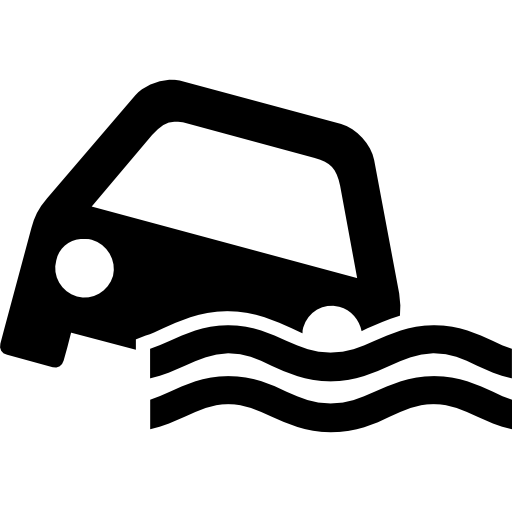Emergency Planning – What we do
The Emergency Planning team makes sure we have the correct arrangements and procedures in place to deal with any major incidents or emergencies that occur in Monmouthshire and if they do, lessen their impact on our communities. We do this by:
- Planning: we assess which risks may affect our communities and develop plans to control and reduce their impact.
- Training and exercising: we provide training for our staff and other agencies in responding to an emergency, to make sure we work effectively together when needed.
- Liaison: we work closely with neighbouring local authorities, emergency services, utilities, voluntary and other appropriate organisations, which allow us to share information and ensure our plans and procedures fit together so we can provide a coordinated response to emergencies.
- Response: we have a 24-hour Emergency Duty Officer system to coordinate the Council’s response to emergencies and work with other emergency responders.
How you can prepare for an emergency?
An emergency can happen at any time and in any place. You may be at home, out at work, or even on holiday. While the range and scale of incidents that can affect the UK is large, their impacts are often broadly similar. In the longer term, those affected may have difficulty accessing important documents such as insurance and banking details, and may need support from statutory services, for example, if you are made homeless. However, there are some very simple steps you can take to make yourself and your family better prepared to deal with emergencies.
- Find out how to TUNE IN to your local radio, TV and internet news services.
- Plan how your family will stay in contact in an emergency – remember your phone might not be working.
- Be prepared to turn off electrical appliances – if there is a power cut and several appliances restart at once when power is restored, they may overload the system.
- Gather essential items which you might need in an emergency such as essential medicines.
- Speak to your neighbours and friends and see if you can help them or they can help you prepare for emergencies.
Local TV & Radio
- BBC Wales
- ITV Wales
- BBC Radio Wales (882 and 657 AM)
- Capital FM (97.4 & 103.2)
- Heart Radio (105 – 106 FM)
Preparing for having to stay in your home:
- Prepare a household emergency plan.
- Know where you can find torches and blankets, should there be a loss of electricity supply.
- Keep a wind-up radio in your home so you can stay tuned in to information about the emergency.
- Maintain a stock of ready-to-eat (e.g. tinned) food and drinking water for your family in case you cannot leave your home for several days.

What if you are at work when an emergency happens?
Employers have a responsibility for the safety and security of their staff. All businesses should have arrangements in place to deal with the impacts of emergencies. Make sure you understand what you need to do in an emergency at work.
Think about your journey to and from work. How would you get home if your normal route was disrupted? What alternative arrangements would you need to make for childcare and other commitments?
If you own or run a business and would like advice on emergency planning or business continuity contact the local council’s emergency planning unit.

What about your children at school?
If your children are at school when an emergency happens, it may be safest for them to remain there.
All schools have plans to cope with local emergencies such as fire and flood, teachers and support staff do all they can to look after the pupils in their care.
You may wish to ask your child’s school for details of their plans to deal with an emergency. You will then be able to incorporate these into your own family preparations.
Be prepared to tune in to your local radio station for advice and for arrangements your local council has made to let parents know when to collect their children from school.
Visit GOV.UK – Preparing for Emergencies https://www.gov.uk/government/publications/preparing-for-emergencies/preparing-for-emergencies
The risks we face in Monmouthshire
Risks affecting you in and around your home
We can all identify risks in and around our home and family. We should be aware of the risk of fire in the home, using power tools or storing household chemicals. In addition, your property may be in an area that is at risk from flooding. You can find out if you are in an ‘at risk area’ and get advice on what to do by contacting the Floodline on 0345 988 1188.
Risks affecting your local area
We need to be ready and able to deal with potential emergencies and disruptive events; these can range from natural disasters like flooding or heavy snow to deliberate acts or attacks. Crises can happen suddenly, e.g. traffic accidents or develop gradually, e.g. a flu epidemic or widespread industrial action.
Typical risks include:
- Flooding
- Traffic accidents
- Severe Weather
- Coastal Pollution
- Industrial accidents and environmental pollution
- Human health
- Animal health
- Industrial technical failure
We aren’t saying that any of these will happen; we just want you to be aware of what could happen.
You can help yourself just by being prepared and knowing what you would do if something happened.
Information on the risks in Gwent can be found on Gwent Prepared – Community Risk Register. https://www.gwentprepared.org.uk/en/risks-we-face/community-risk-register/
How we work with other emergency responders
An emergency can happen at any time, and many different agencies will play a part in responding to the emergency. To make sure the response is coordinated there are plans and arrangements in place so that everyone knows what they are responsible for.
We work in partnership with the Emergency Services, Natural Resources Wales and other responder agencies in Gwent to reduce the risk of emergencies happening, increase our ability to respond appropriately and recover from emergencies.
By working together, we can help to:
- Prevent the emergency getting worse.
- Save lives.
- Relieve the suffering of those affected by the incident.
- Restore normality as soon as possible.
Information on how we work with others in planning for and responding to emergencies can be found on Gwent Prepared. http://www.gwentprepared.org.uk/
What can you do in an emergency?
If you find yourself in the middle of an emergency, your common sense and instincts will usually tell you what to do. However, it is important to:-
- Make sure 999 has been called if people are injured or if there is a threat to life.
- Not put yourself or others in danger.
- Follow the advice of the emergency services.
- Try to remain calm and think before acting, and try to reassure others.
- Check for injuries – remember to check yourself before attempting to help others.
If you are not involved in the incident, but are close by or believe you may be in danger, in most cases the advice is:
- Go inside a safe building.
- Stay in until you are advised to do otherwise.
- Tune in to local radio or T V for more information.
Of course there will be occasions when you should not “go in” to a building, for example if there is a fire, and then the advice is to ‘Get Out and Stay Out’
Go In, Stay In, Tune In
In the case of most major emergencies, the simple advice to follow is go inside, stay inside,and tune into local radio, or in the case of a burning building, get out and stay out.
With most incidents the safest place to be is indoors, and with correct preparation you should be able to stay there safely for some time. To help you know what to do, listen to local radio for advice and information. Radio is easily accessible and as long as you have a battery powered or wind-up radio, you can still listen even if there is a power cut.
Evacuation
Unfortunately some emergencies will require the public, for health and safety reasons, to be evacuated while the emergency services deal with the incident.
If you are advised to evacuate:
- Respond to instructions from the emergency services
- Use whatever transport is made available
- Report to any named location where further advice will be available
- Use the check list below:
- Get together family and pets.
- Make sure you have warm clothing.
- Get together any special food for babies and medicines in use.
- Make sure fires, cookers, TV’s etc. are turned off.
- Lock doors and windows.
Monmouthshire County Council’s Response in an emergency
The main function of Monmouthshire County Council during the early stages of an emergency incident is to maintain and protect normal council services, whilst liaising with and supporting the responding emergency services.
Depending on the nature and scale of any incident the council can be flexible in a support function. The council will become involved in an incident once it has been alerted by the emergency services. As an incident develops and moves to the recovery phase the council will begin to take the lead role from the emergency services. This transfer will only take place once the immediate threat to human welfare, the environment, or property has reduced.
In order for the council to provide assistance it will be made aware of any potential incidents as soon as possible by the emergency services involved.
The council will be involved in an incident in a number of ways including:
- Social care and welfare support
- Transport, emergency works and repairs
- Emergency finance
- Providing temporary accommodation
- Emergency care centres providing shelter and refreshments
- Provision of specialist equipment & staff
- Finding premises for temporary mortuaries
Monmouthshire works with a number of voluntary organisations that makes up the Gwent Local Resilience Forum Volunteers Group. They provide specialist voluntary organisation support and advice to emergency planning and response to incidents.
As well as providing social support, the council will also provide other support including technical advice & resources, Environmental Health, logistical support, and the long term management of recovery and restoration of normality.




